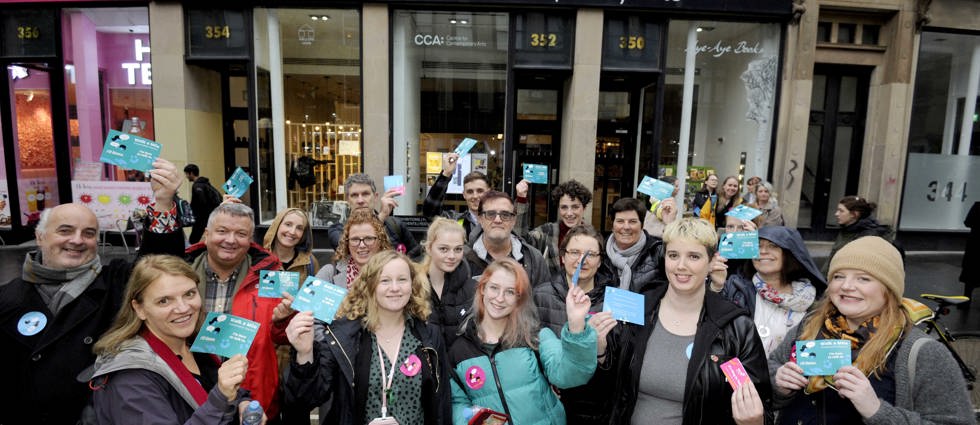
20 years of See Me
October 2022 marks 20 years of See Me and the movement to end mental health stigma and discrimination in Scotland.
A lot has changed over the last 20 years – attitudes are changing, and people are more willing to talk about mental health and support others too.
Our latest polling has shown that eight in 10 Scots would have the confidence to talk about their own mental health today – compared to just two in ten (22 per cent) 20 years ago.
This is great progress – but we know we’ve got more to do, including working with minority groups and those with experience of severe and enduring mental illness to target the stigma which still exists. Our five-year strategy With Fairness in Mind outlines how we’ll do this with the support of our partners and supporters in the years ahead.
We do still have lots to celebrate from the last two decades. Scroll down to see some of the highlights from the last 20 years of See Me.
Looking back
Our volunteers and managing partners take a look back at what we've achieved in the last 20 years
2002
In October 2002, 'see me' formed as part of the National Wellbeing Programme. It is originally launched as an awareness campaign for mental health stigma and discrimination.
In our first year, we trained our first media volunteers to share their experiences of mental health stigma and discrimination in the news.
We also won four awards which included the Mental Health Media Award for Best Public Information Campaign.
2003
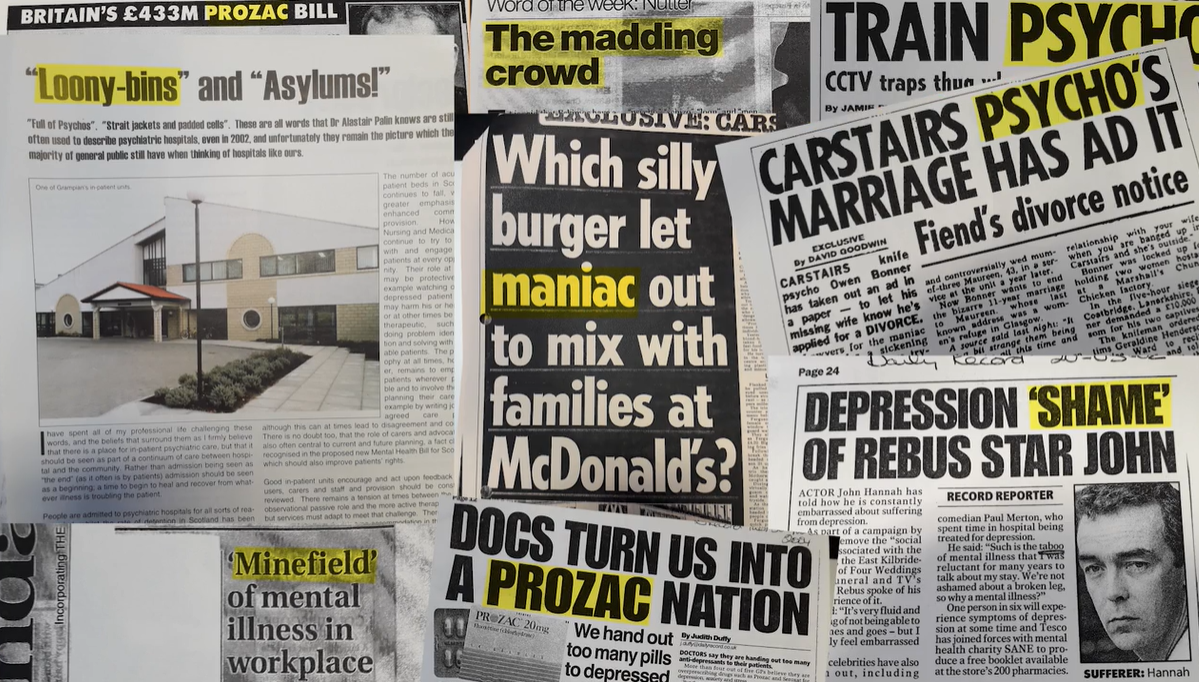
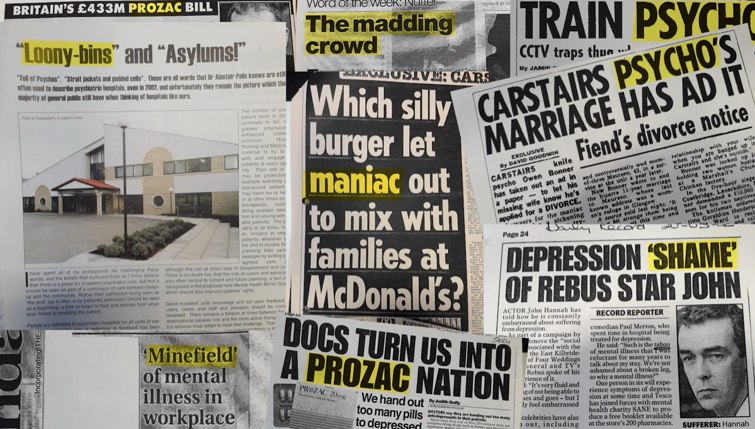
The Stigma Stop Watch was introduced to challenge the language used by journalists when talking about mental health – some of the headlines we saw then seem truly shocking 19 years down the line.
2004
The 'see me' advert about self-harm and stigma appears on televisions and in cinemas across Scotland.
The 2004 Social Attitudes Survey found that there was a 57% decrease in derogatory terms used by the media, showing that the work of 'see me' was having a direct impact.
2005
In 2005, we turned our attention to the next generation. The Just Like Me messaging for young people used cartoons that were aired on Channel 4 Scotland and MTV which led to an increase in knowledge amongst the target audience.
2006
The Hear Me national survey of mental health service users and carers explored people’s experience of stigma, their views on how the problem has changed and the impact of the 'see me' campaign.
Over half of all service users and carers felt that ‘see me’ was very important in challenging the stigma of mental ill health.
2007
We signed up as sponsor to the Scottish Mental Health Arts and Film Festival looking into stigma through the arts, kick-starting our ongoing commitment to supporting projects which tackle stigma through the arts – like the Anti-Stigma Arts Fund.
2008
We took a new approach in 2008 with two campaign strands – a public campaign and stakeholder engagement.
We had a focus on self-stigma, stigma experienced by those with a diagnosis of psychosis, and in medium and high secure care settings.
We also launched a new advert, highlighting the important role that friends can play when someone is struggling with their mental health.
2009
We conducted a follow-up to the Hear Me Survey to measure changes since 2006.
There were significant decreases in stigma in employment and within the local community.
2010
By 2010, 600 organisations in Scotland had signed up to the ‘see me’ pledge, a commitment to tackling mental health stigma and discrimination in the workplace.
2011
Along with NHS Greater Glasgow and Clyde, GAMH and VOX Scotland, we launched the Beyond Prejudice film that looked at stigma and discrimination among ethnic minority communities in Scotland.
On World Mental Health Day, flash choirs were held by 'see me' in Glasgow and Edinburgh to raise awareness of mental health and get people talking.
2012
We introduced the first What’s on Your Mind activity pack for schools and youth groups.
2013
The Scottish Government, along with Comic Relief, announced an investment of £4.5 million into a three year anti-stigma and discrimination national programme. Built on the work of 'see me', it was hosted by SAMH and the Mental Health Foundation – and we became See Me, the national programme to end mental health stigma and discrimination.
2014
We had a lot of change in 2014. We rebranded and launched the new See Me website with the new message that See Me now works to change behaviours, not just attitudes.
Our first Community Champions were recruited and trained, and we hosted the ‘See me… now’ conference with stakeholders in Dunblane.
The Local Grant and Community Innovation Fund also launched to support growth of social movement in communities.
2015
In 2015, See Me worked with IRISS to explore the best way to tackle mental health stigma in communities. The project saw peer researchers from IRISS work with some of See Me Change Networks, groups of organisations and individuals who have come together to carry out projects funded by the Community Innovation Fund.
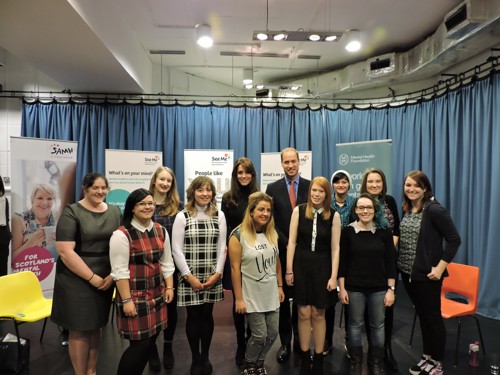
We recruited our first Youth Champions, who then met with the now-Prince and Princess of Wales, William and Catherine – and some of these volunteers are still involved with the programme today!
We held the rights for Life conference with SRN and VOX in Glasgow, and held a reception at the Scottish Parliament to look at stigma in health care with MSPs.
We also launched See Me in Work and our workplace eLearning, alongside the Power of Okay campaign for workplaces which went viral – the campaign film was watched over 180,000 times in 24 hours. The campaign went on to win the Charity and Not for Profit award at the 2016 Marketing Society Awards.
We hosted our first-ever Walk a Mile event held in Edinburgh, with activist Chris Young.
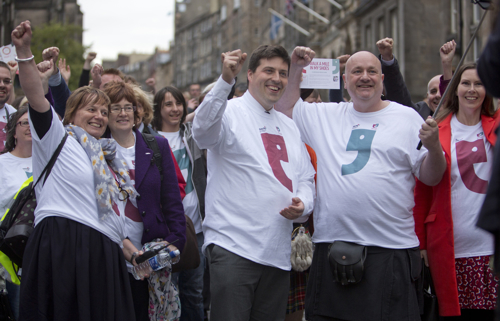
2016
The Rights for Life Declaration was launched, and we hosted the Global Anti Stigma Alliance annual event in Glasgow, seeing anti-stigma programmes from across the world visit Scotland.
Stigma Free Lanarkshire was founded to help grow the movement in Lanarkshire and, and we also funded Moray Wellbeing Hub to help develop the movement in Moray.
Our It’s Okay to not be Okay campaign for young people was carried out in November and December.
We launched a new strategy, in which See Me became a complex, multi-layered programme focused on behaviour change and cultural change.
2017
The new What’s On Your Mind pack was piloted with the help of six schools across Scotland.
We hosted our first leaders event in health and social care, and formed a partnership with LGBT Health and Wellbeing to train first group of See Me Proud champions.
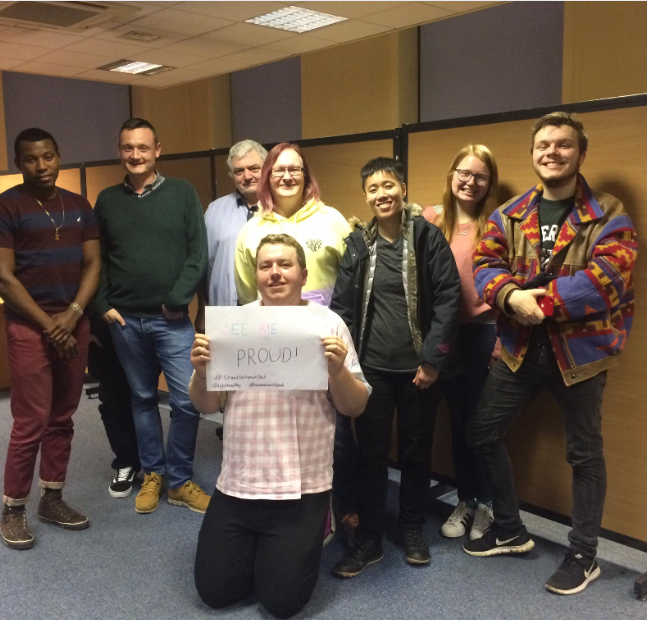
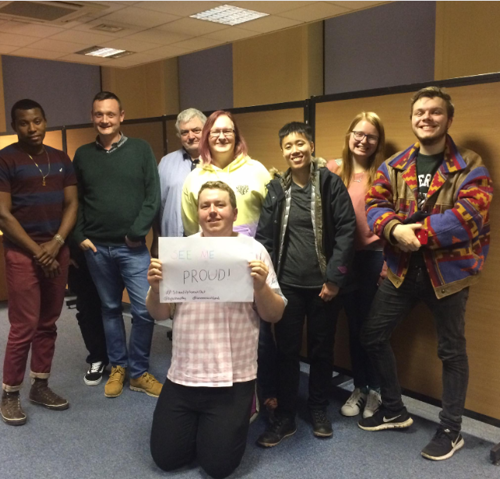
Our Pass the Badge digital campaign launched, with thousands sharing their pictures and stories online.
2018
In February, we led Scotland to be part of the first UK-wide Time to Talk Day. See Me champions travelled 700 miles around Scotland in six days, to get conversations started.
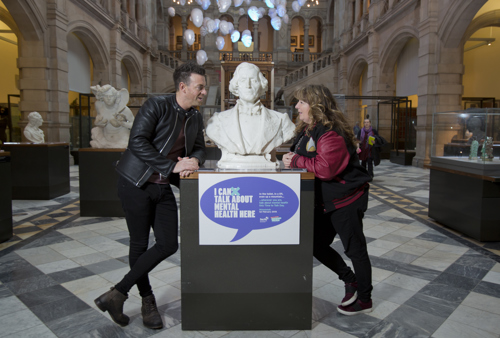
We launched our workplace equality fund, engaging 4 private employers.
We also launched FeelsFM, the world’s first emoji-powered jukebox for mental health, getting the views of over 5000 young people.
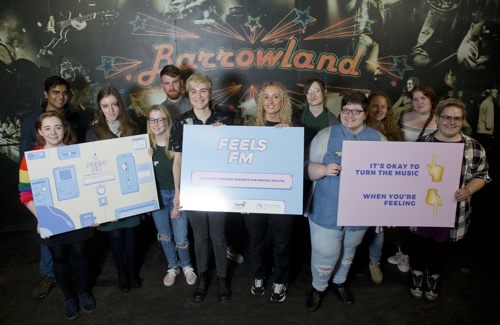
Youth champion Zoe won the volunteer of the year at the Youthlink Scotland Awards.
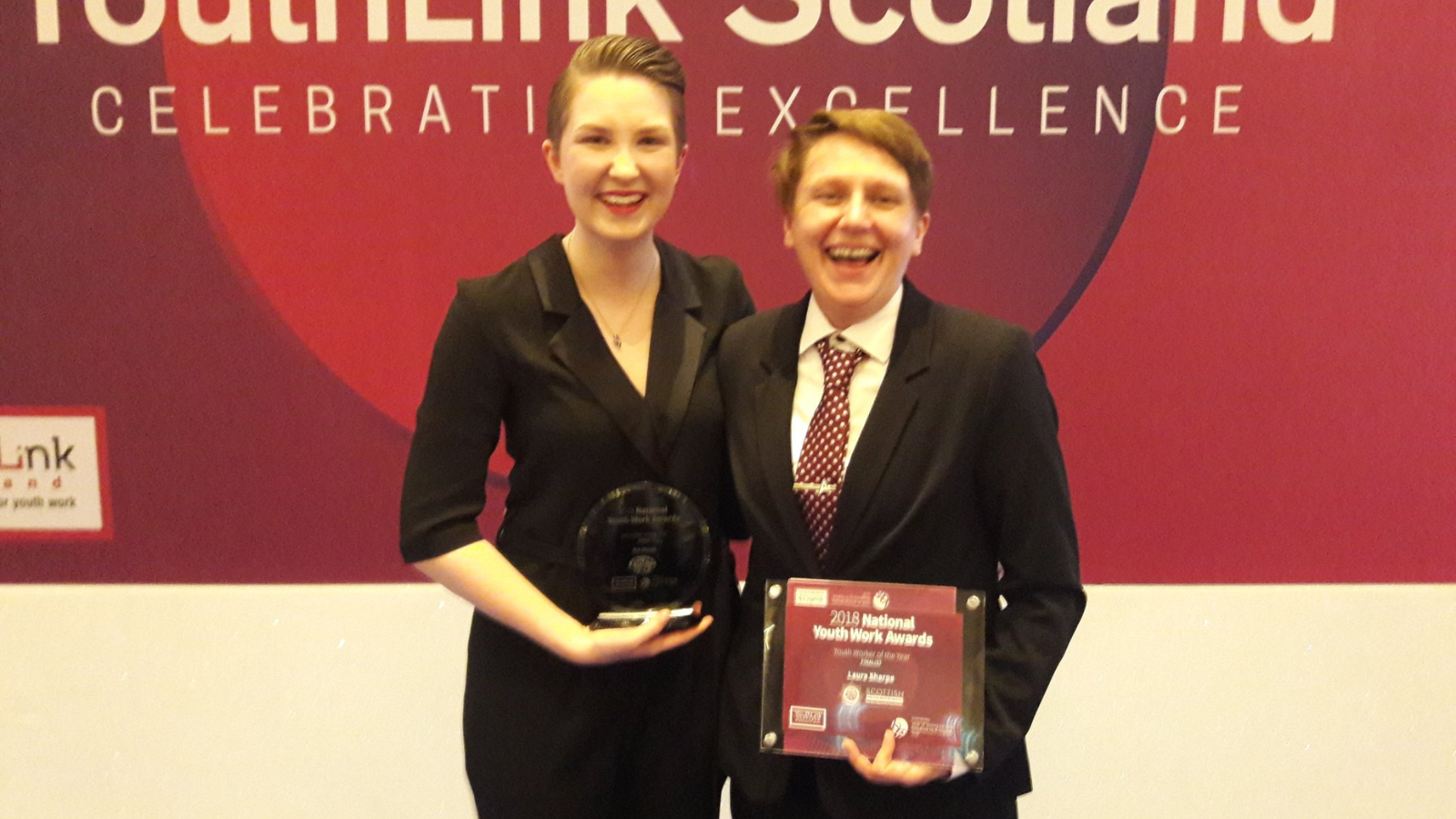
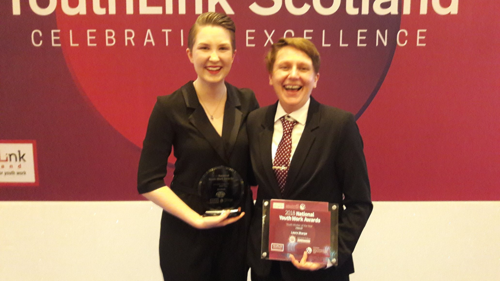
2019
We hosted the Leading the Way Conference, looking at mental health inclusion in the workplace.
Our work with young people was recognised when we won three Youthlink Scotland Awards, including Team of the Year.
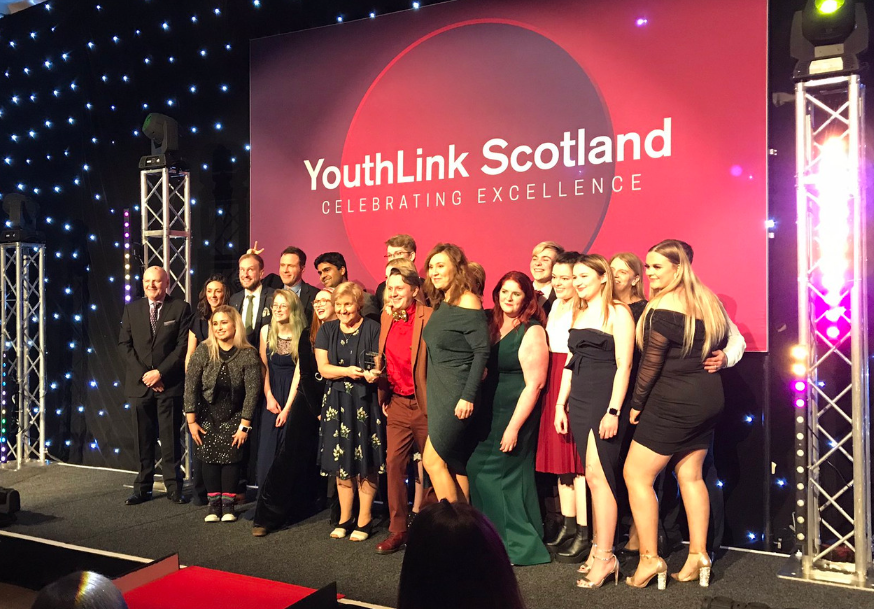
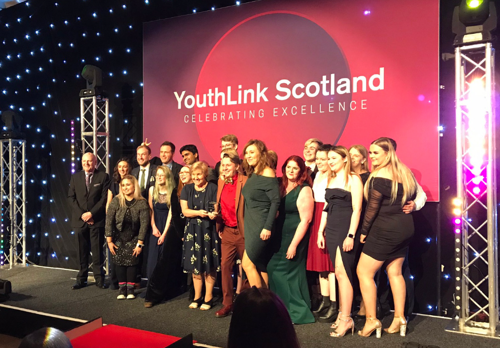
2020
The See Me national event, It Starts With You, saw hundreds gather together in Edinburgh to hear plans on how we will tackle stigma moving forward.
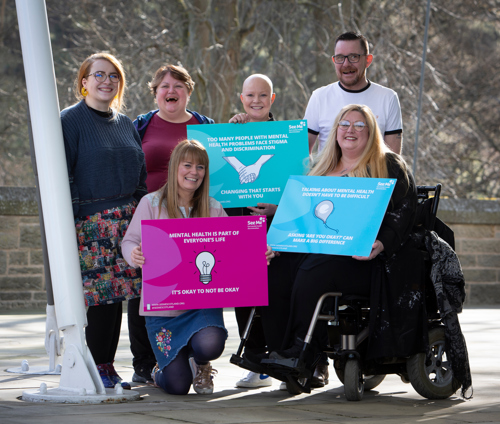
Our Anti-Stigma Summer Sessions saw weekly online events streamed live on social media, to keep up momentum during the pandemic.
See Me and Feniks launched the Mental Health and Suicides Among Polish Men in Scotland report, looking at the impact of stigma on Polish men in Scotland.
BBC journalist Shiona McCallum became the first See Me ambassador.
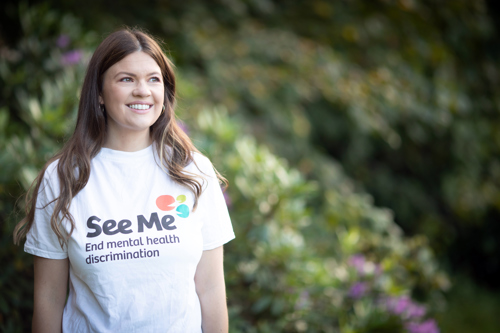
2021
Our new five-year strategy, With Fairness in Mind, was introduced.
As part of the Scottish Mental Health Partnership, See Me volunteers took a leading role in their Promote, Prevent, Provide election manifesto campaign.
We launched the mental health inclusion suite of resources for health and social care professionals.
We developed workplace self-assessment tools to help employers identify where they could make improvements for their staff.
FeelsFM relaunched, with a new focus on families and interactions with adults.
In October, we launched the See Us campaign, to encourage more people to take action to tackle stigma, and join the movement.
2022
See Me See Change, a new resource for schools, was piloted and launched for staff and students Scotland-wide in June.
The See Me in Work portal launched, enabling employers to take part in the programme online.
The Scottish Mental Illness Stigma Study was conducted – the first of its kind in the UK.
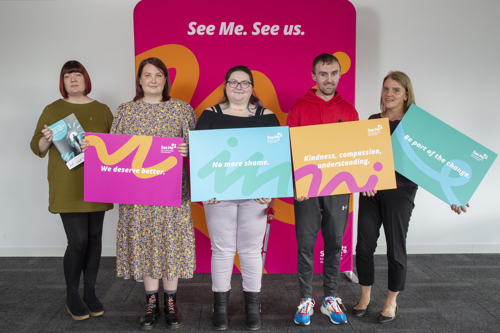
In October, we celebrated 20 years of See Me with Walk a Mile in Glasgow and a reception with volunteers and partners.
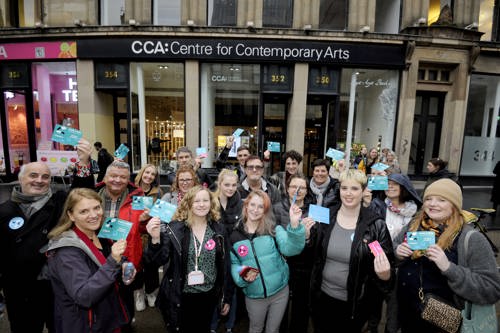
It’s been an incredible journey so far.
And none of it would have been possible without the support of our partners, supporters, team members past and present and, of course, our brilliant volunteers.
We know there’s still work to be done in the years ahead – but we think that, with the ideas, energy and enthusiasm of all those behind the See Us movement, we’ve got a really good chance of making a difference.
Be part of the change
Play your part in tackling mental health stigma and discrimination through the See Us movement.
Access tools and resources